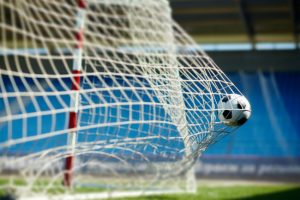 Earlier this year, the US Supreme Court ruled in favor of the state of New Jersey in the latter’s sports betting case. By doing this, the court in practice legalized sports betting in the country, lifting the federal ban which has been imposed by the Professional and Amateur Sports Protection Act of 1992 (PASPA).
Earlier this year, the US Supreme Court ruled in favor of the state of New Jersey in the latter’s sports betting case. By doing this, the court in practice legalized sports betting in the country, lifting the federal ban which has been imposed by the Professional and Amateur Sports Protection Act of 1992 (PASPA).
This groundbreaking move, however, raised some concerns that the sports betting legalization could jeopardize college athletes by putting them in danger from being affected by gambling-related harm. According to some experts, college athletes who still do not have actual paychecks could be more susceptible to the dangerous effects of gambling.
Most recently, some college athletics’ power brokers have shared their concern that college football could find it difficult to define integrity in the age of legal sports betting offerings. As reported by CBSSports, the gaming analyst for SportsLine Todd Fuhrman said that commissioners are trying to buy more time to find out how to make money from sports betting.
With sports betting making an increasing number of US states to start procedures to legalize the newly-opened industry, power brokers seem to become more concerned about the future of college sports leagues and integrity. Young athletes in college have been considered more susceptible to gambling-related harm, so the increasing number of sports betting operators being legalized nationwide and the variety of new gambling options could bring some bad influence in their lives.
NCAA Opposes Sports Betting That Could Endanger College Athletes
 Apart from the fact that the legalization of sports betting could bring more gambling-related harm to college athletes, some experts have shared their fears that the new form of gambling could make match-fixing flourish over the years to come. According to these experts, college athletes could not be really protected in case that someone is going to fix a game, because they are not going to do it through legal channels.
Apart from the fact that the legalization of sports betting could bring more gambling-related harm to college athletes, some experts have shared their fears that the new form of gambling could make match-fixing flourish over the years to come. According to these experts, college athletes could not be really protected in case that someone is going to fix a game, because they are not going to do it through legal channels.
What is more, the commissioners are not worried only about players, but also about managers, trainers and student assistants, or in other words – everyone who could have any inside information about a certain match.
According to an NCAA study from 2012, 26% of male professional athletes gamble on sports – a figure which represents a 4% increase in comparison to the percentage registered in 2004 over the same study. The 2012 research also showed that 68% of the players who take part in a sports betting activity took it for merely a harmless pastime.
The NCAA has previously revealed that it opposes all forms of sports betting, be it legal or not, which could potentially undermine the integrity of sports contests and put the mental and physical health of college athletes in jeopardy, or endanger the intercollegiate athletics community in any way.



















